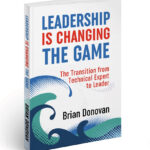
Photo by Krissana Porto on Unsplash
Samantha was in the grip of perfectionism. Nothing she did was ever good enough, at least in her eyes. She often compared herself unfavourably with other people. Her perfectionism had turned her into a chronic procrastinator. She delayed finalising her work because she thought it was not yet good enough for others to see. She tried all the productivity tools, tips and techniques she had heard about but nothing really altered.
She could see her leadership aspirations being dashed if she did not change and she decided to put an end to her perfectionism. She had been able to get away with it in her days as a subject matter expert. But now that she was in a leadership role, it was taking its toll on her health. She would burn out if she continued to place unrealistic expectations on herself and those around her. Team members were already opting out of working with her because they could not grow. Clients were getting irritated because she did not produce timely results.
She set herself a new context; to drive for excellence. It was a subtle but profound shift. It meant that she could produce an 80% result to suit the client’s need for a quick outcome. She came up with solutions to problems that she acknowledged as a work in progress. She gave her team a new freedom to try risky innovations in their pursuit of excellence for the business. Excellence, as she defined it for herself, was about continuous improvement not perfection.
The point of Samantha’s story is that she altered how she behaved which changed what she did. It is easy to be seduced into the belief that if we follow the latest list of tips and techniques on leadership we will be the leader we want to be. But leadership is not a linear formula.
Like Samantha, we can alter our mindset if we are willing. In the book, Mindset, Carol Dweck argues that “the view you adopt for yourself profoundly affects the way you lead your life”. Her research has demonstrated that those with a growth mindset believe we can build on our basic qualities through our ongoing efforts. As a result, we are more likely to thrive on challenges and to learn from failures. Game-changing leaders have a growth mindset.
Where could you shift your mindset from what you do to how you do it?

